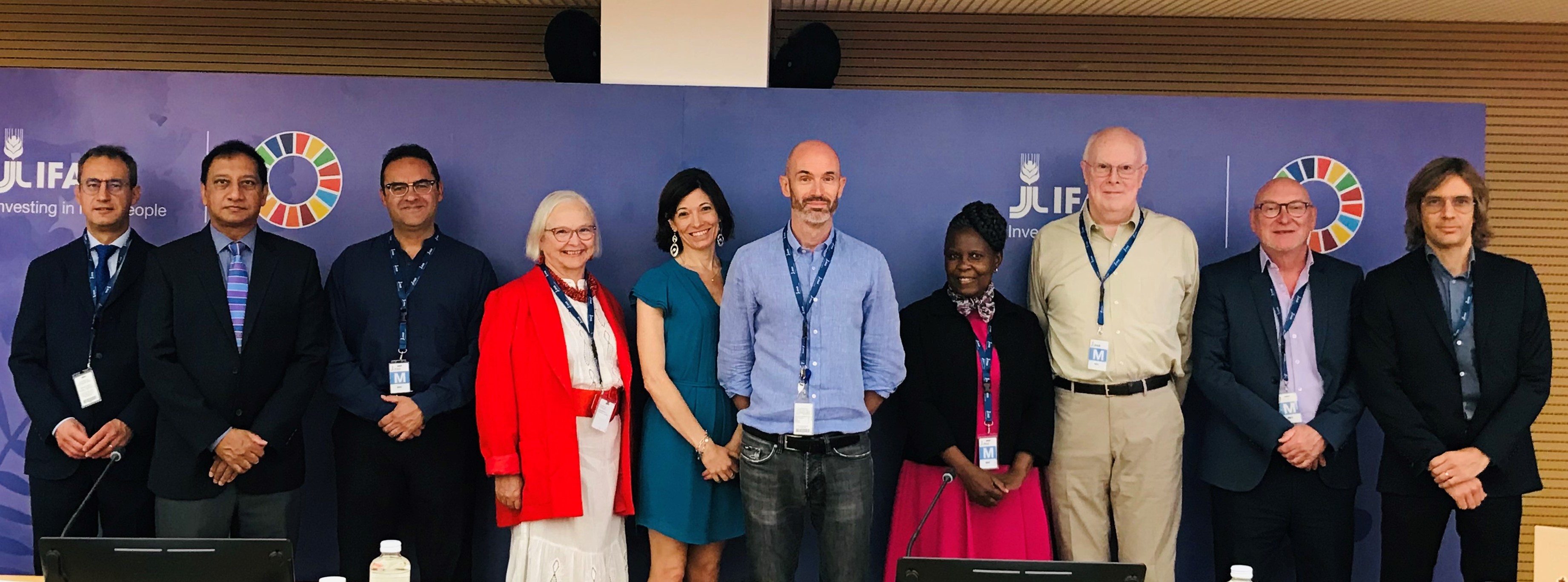Transformative solutions necessary to avoid catastrophic consequences - IOE
Wilton Park, UK, 9 September 2022 – “Climate change is a very tangible and concerning reality. Life on earth faces catastrophic consequences unless drastic and immediate action is taken. Transformative solutions are needed. Evaluation can play an important role in this regard, by capturing and presenting evidence of said transformation”, affirmed Indran A. Naidoo, Director of the Independent Office of Evaluation of IFAD (IOE), in his keynote speech during the opening of the event entitled ‘Transformational change towards a sustainable future’. The three-day meeting took place on 7-9 September 2022.
Set against the prestigious backdrop of Wilton Park House, the in-person ‘by invitation only’ conference was the third dialogue in the Wilton Park series on transformational change which focuses on climate change and the environment/development nexus. A host of high-level evaluation experts flew-in to bring concrete, evidence-based guidance on designing, supporting and implementing transformational change for a sustainable future.
The climate crisis and its impact are a defining issue of our time. It continues to threaten societies globally and its economic, social, and environmental impacts are a challenge for us all. The time for incremental changes has passed and governments and organisations will need to design and implement dramatic policy and infrastructural changes to ensure a sustainable future. In this context, Dr Naidoo underscored the importance of ensuring an evidence base for holistic climate change adaptation solutions that build climate, environmental and developmental resilience together in order to ramp-up climate finance and environmentally sustainable policies and practices.
“Many governments face significant challenges to incentivize sustainable climate adaptation responses. Evaluations could and should be looked upon as having the potential to play a critical role in this regard. The transformative change that we are looking for is the shift in governments’ and international agencies’ paradigm of agricultural interventions, moving from an anthropocentric approach to one which is more environmentally-focused”, the IOE Director highlighted.
Event participants, presenters and speakers echoed this perspective, calling for major changes in our economies and societies to be effectuated in record time. In order to succeed, these changes will need to be systemic, comprehensive and include voices, values and world views from a variety of cultural and ethnic backgrounds, and a focus on issues such as climate justice, just transition, and the full range of the Sustainable Development Goals (SDGs).
To this end, the conference brought to the forefront examples of transformative pathways and actions that could truly work to mitigate climate change risks and foster systemic resilience, as societies innovate, experiment, and scale-up effective climate responses as the world transforms in the aftermath of the COVID-19 pandemic, and the global shocks caused by the responses to the of Ukraine crisis. The evidence presented helped to better understand how systems are connected and interdependent; what changes to systems need to happen for transformational change to take place; and what processes might generate commonly-held beliefs about how to transform cultures, values and societies.
In closing, participants agreed that options exist for creating stronger, more coherent research, science, monitoring, evaluation and learning systems that can provide in a timely and appropriate fashion the evidence and knowledge needed to scale up orchestrated transformations.
The event was organized in partnership with the Climate Investment Funds, Global Environment Facility, UNDP Independent Evaluation Office, and IOE, with support from the Green Climate Fund, Institute of Development Studies, International Evaluation Academy, the German Institute for Development Evaluation and the UK Department for Business, Energy and Industrial Strategy.
To view the IOE Director's statement, please click here.
For further information, please contact Alexander Voccia [here]

